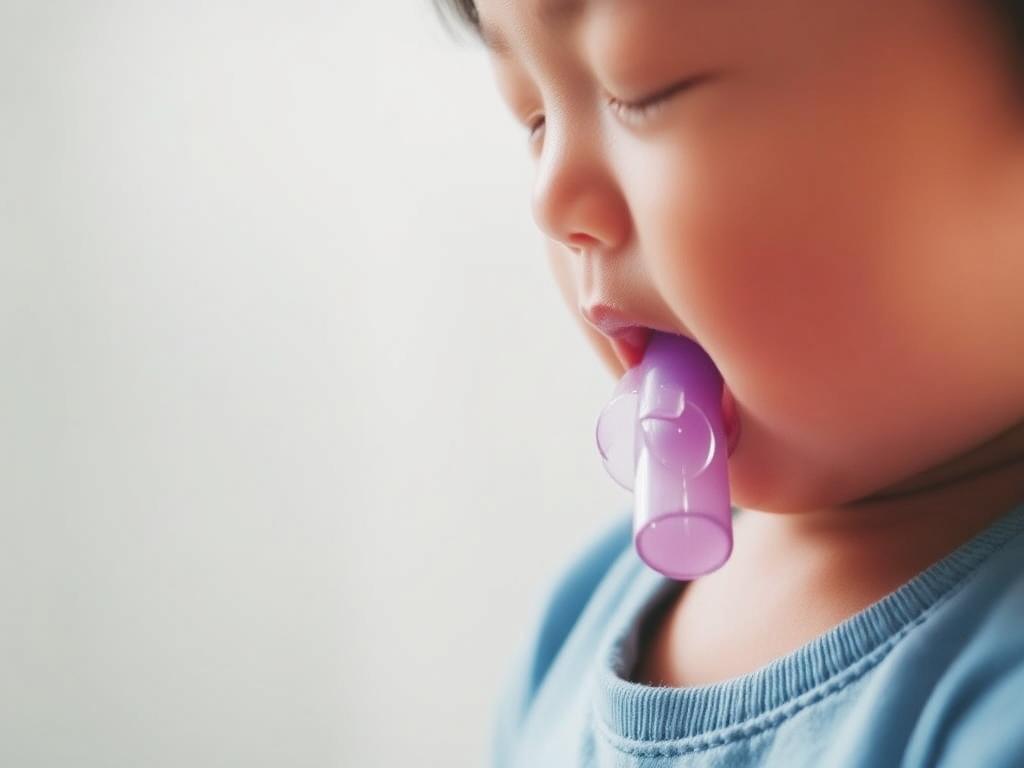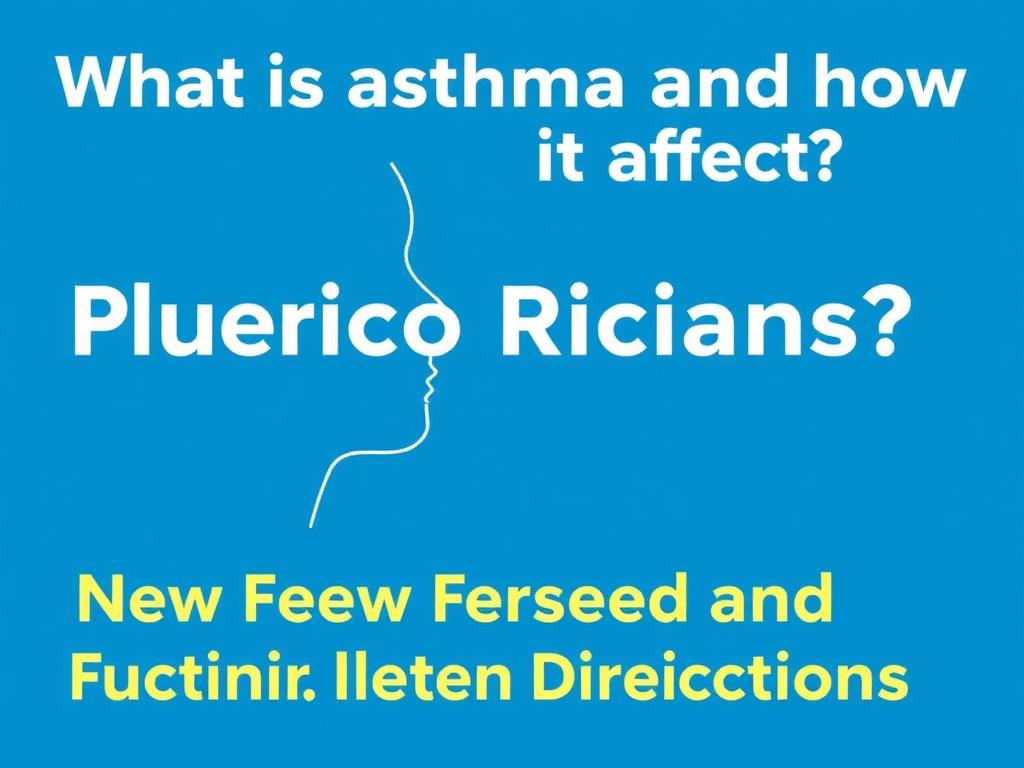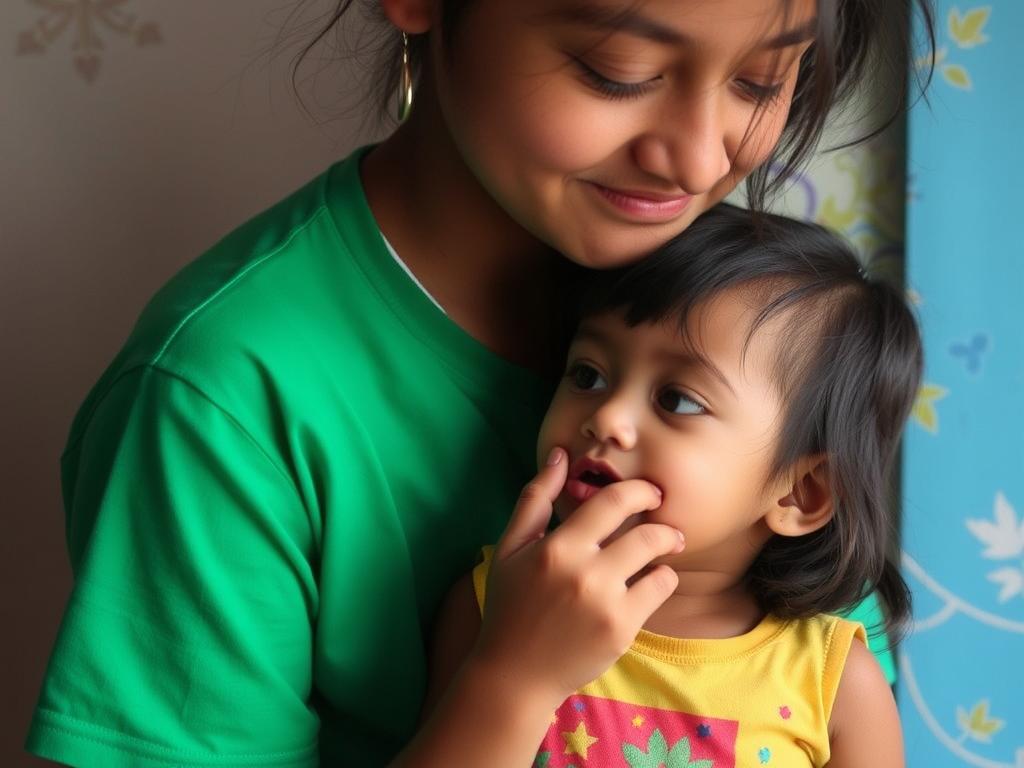Asthma is a chronic respiratory condition that affects millions worldwide, and Puerto Rico, home to a vibrant and resilient population known as Boricuas, is no exception. This disease, while common, carries unique implications for the Boricuan community due to environmental, socio-economic, and genetic factors. In this article, we’ll explore in-depth what asthma is, how it manifests, triggers particular to Puerto Rico, and how it impacts the daily lives of Boricuas. We’ll also discuss current treatments and living strategies tailored for this community, aiming to shed light on asthma from both a medical and cultural perspective.
Understanding Asthma: What Exactly Is It?
Asthma is a chronic inflammatory disease of the airways in the lungs. It causes episodes where the airways become narrow, leading to difficulties in breathing. At its core, asthma involves airway inflammation, bronchial hyperresponsiveness, and reversible airflow obstruction. The symptoms often include wheezing, shortness of breath, coughing, and chest tightness. These symptoms may flare up due to exposure to various triggers.
The causes of asthma are multifactorial, involving genetics, environmental exposures, and lifestyle factors. The airway inflammation in asthma leads to swelling and an excess production of mucus, which further obstructs airflow. For people living with asthma, including many Boricuas, understanding these mechanisms is key to better control and prevention of asthma attacks.
Key Features of Asthma
- Chronic inflammation of the airways
- Episodes of wheezing and breathlessness
- Trigger-induced attacks
- Reversibility between episodes
- Need for long-term management
Asthma Prevalence among Boricuas
One of the striking realities about asthma in Puerto Rico is its disproportionately high prevalence compared to other US states and territories. Studies show that Puerto Ricans have among the highest asthma rates in the world. Approximately 16% of children and 13% of adults suffer from asthma, significantly above the national average. This high prevalence makes asthma a critical public health issue within the Boricua community.
Several factors contribute to this high asthma rate, including genetic predisposition, environmental exposures, and social determinants of health. For example, living conditions such as crowded housing and exposure to mold, dust mites, and cockroach allergens exacerbate asthma symptoms and increase attack frequency. Additionally, air pollution and tropical weather conditions stimulate asthma triggers uniquely in Puerto Rico.
Why Are Asthma Rates Higher in Puerto Rico?
| Factor | Description | Impact on Asthma in Boricuas |
|---|---|---|
| Genetics | Genetic studies show Puerto Ricans have specific gene variants linked to higher asthma susceptibility. | Increased baseline risk throughout life. |
| Environmental Exposures | High humidity leads to mold growth; urban pollution is prevalent in areas like San Juan. | Triggers more frequent and severe asthma attacks. |
| Socioeconomic Factors | Limited access to healthcare and asthma control medication among low-income families. | Under-treatment and more emergency visits. |
| Cultural Practices | Use of traditional remedies and delayed medical care. | May delay effective asthma management. |
Common Asthma Triggers in Puerto Rico
Managing asthma means understanding what triggers an attack or worsens symptoms. In Puerto Rico, certain environmental and lifestyle factors often induce asthma flare-ups among Boricuas.
Environmental Triggers
The tropical climate of Puerto Rico fosters mold and mildew growth, significant asthma triggers for many. The island also faces occasional dust storms from the Sahara desert, which can increase airborne irritants. Additionally, urban pollution levels, especially ozone and particulate matter from traffic congestion in metropolitan regions, can provoke asthma exacerbations.
Indoor Allergens and Pests
Many Puerto Rican homes struggle with pest infestations, particularly cockroaches and dust mites, both common asthma triggers. Exposure to these allergens aggravates airway inflammation. Tobacco smoke exposure remains a concern in some households, further compromising asthma control.
Stress and Lifestyle Factors
Stress is an often overlooked but impactful trigger for asthma attacks. Many Boricuas face economic hardships, natural disasters like hurricanes, and social challenges, all contributing to stress levels that may worsen asthma conditions.
Treatment and Asthma Management for Boricuas

Living with asthma requires a proactive approach, including medications, trigger avoidance, and routine care. Treatment strategies in Puerto Rico reflect both global asthma guidelines and local challenges.
Medications Used in Asthma Treatment
Asthma medications broadly fall into two categories: quick-relief (rescue) and long-term control medications. Rescue inhalers contain bronchodilators such as albuterol that open airways during attacks. Long-term controllers often include inhaled corticosteroids or leukotriene modifiers that reduce airway inflammation.
Common Asthma Medications
| Medication Type | Examples | Purpose |
|---|---|---|
| Rescue Inhalers | Albuterol, Levalbuterol | Relieve acute symptoms quickly |
| Inhaled Corticosteroids | Fluticasone, Budesonide | Reduce airway inflammation long-term |
| Leukotriene Modifiers | Montelukast | Control allergy-related asthma |
| Combination Inhalers | Fluticasone/Salmeterol | Both anti-inflammatory and bronchodilator effects |
Challenges in Asthma Management in Puerto Rico
Despite effective medications, some Boricuas struggle to access or adhere to treatment plans. Barriers include cost of medications, limited healthcare access, and lack of awareness about asthma severity. Additionally, cultural reliance on home remedies sometimes delays professional medical care, contributing to complications.
Community Programs and Education
Several community initiatives in Puerto Rico focus on educating patients and families about asthma management. These programs teach trigger identification, medication proper use, and emergency responses. Schools also play a vital role in supporting children with asthma.
Preventive Strategies: Living Well with Asthma in Puerto Rico
Preventing asthma attacks is essential, and Boricuas use a variety of practical strategies to control symptoms.
Avoiding Triggers
Avoidance is the cornerstone of asthma prevention. This includes measures such as:
- Keeping indoor areas dry and free of mold
- Using pest control to limit cockroach exposure
- Avoiding outdoor activities during high pollution or dust events
- Maintaining smoke-free environments
Healthy Lifestyle Habits
Exercise strengthens respiratory muscles but should be done cautiously under medical supervision. Proper nutrition and weight management also contribute to overall lung health. Stress reduction techniques such as meditation can help lessen attack frequency.
Regular Medical Check-Ups
Routine visits to healthcare providers ensure asthma remains controlled and medications are adjusted as needed. Patients are encouraged to develop an asthma action plan, outlining daily treatment and steps to take during an attack.
The Cultural Dimension of Asthma among Boricuas
Asthma is more than a medical issue for Boricuas; it’s embedded in cultural experiences and family life. Many Puerto Rican households face asthma within multigenerational family dynamics, affecting caregiving and health behaviors. Traditional views about illness, stigma, and reliance on natural remedies may influence how asthma is perceived and treated.
Healthcare providers working with Boricuan patients often emphasize culturally sensitive communication to build trust and improve outcomes. Community leaders and asthma advocates play important roles in translating medical information into culturally relevant contexts.
Role of Family and Community Support
In Puerto Rican culture, family support is strong. Caregivers often assist in medication management and triggering recognition. Community organizations offer educational workshops and connect patients with resources, fostering a sense of solidarity.
Asthma and Natural Disasters
Natural disasters such as hurricanes pose significant challenges. Displacement and exposure to mold in damaged homes can exacerbate asthma symptoms. Preparedness plans specific for asthma patients have been developed to address these risks in Puerto Rico.
Looking Ahead: New Research and Future Directions

Ongoing research aims to understand the unique genetic and environmental factors contributing to the high asthma rates among Boricuas. Scientists are investigating innovative treatments, including biologics that target specific immune pathways in asthma.
Public health efforts continue to address disparities by improving access to healthcare and medicines, raising awareness, and promoting environmental policies to reduce pollution. Technology, such as mobile health apps customized for Puerto Rican patients, offers promising tools to enhance asthma self-management.
Summary of Key Asthma Statistics in Puerto Rico
| Statistic | Puerto Rico Figures | U.S. National Average |
|---|---|---|
| Childhood Asthma Prevalence | ~16% | ~8.5% |
| Adult Asthma Prevalence | ~13% | ~7.7% |
| Emergency Room Visits | Higher per capita for asthma | Lower |
| Asthma Mortality Rate | Elevated compared to other ethnic groups | Lower |
Living with Asthma: Personal Stories from Boricuas

To truly grasp the impact of asthma on Boricuas, personal narratives reveal the emotional and social challenges alongside the physical symptoms. Many patients describe asthma as a «silent battle,» managing symptoms daily while balancing work, family, and school. Stories often include overcoming stigma, finding culturally appropriate care, and advocating for better medicine access.
These personal accounts highlight the resilience and community spirit that characterize Puerto Ricans dealing with asthma. They also emphasize the vital importance of education, support systems, and ongoing healthcare improvements.
Conclusion
Asthma is a complex condition that significantly affects the Boricua population on multiple levels. From biological predispositions and environmental exposures to cultural factors and healthcare access challenges, Puerto Ricans face unique hurdles in managing this chronic illness. Yet, the strength of their community, advances in medical treatment, and dedicated public health efforts offer hope for better outcomes. Understanding what asthma is and how it specifically impacts Boricuas allows for compassionate care and effective interventions. By combining medical knowledge with cultural awareness, caregivers and patients alike can navigate asthma’s challenges and strive for a healthier future on the island.
